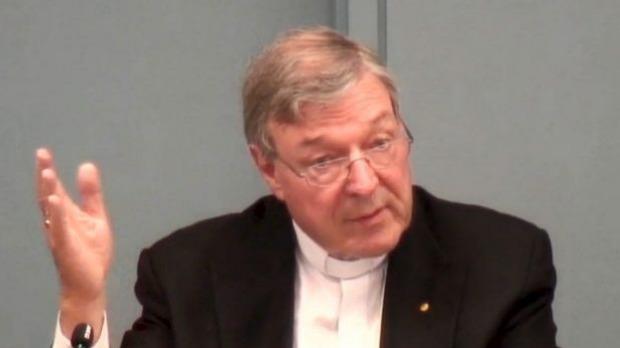|
Placatory Pell leaves key questions hanging
Sydney Morning Herald
Cardinal George Pell has ceded just enough ground at the child abuse royal commission to give victims a glimmer of hope. There is a vague hint that senior Catholic Church leaders are seeing that the culture of turning a blind eye must change. But the commission has yet to hone in on the key questions raised by victims' testimony relating to the extent of Cardinal Pell's specific knowledge of abuse from the 1970s and whether he was open to accepting or acting on it. In his third appearance at the commission, the Cardinal admitted that "in those days if a priest denied (sexual abuse) activity I was strongly inclined to accept that denial". Granted, some adults then might have trusted a priest's word above a child's. But Cardinal Pell's testimony revealed a deeper malaise. Despite knowing of abuse cases, and hearing the "gossip" among colleagues, he still believed adults with vested interests over the children or their carers. He even reminded the commission that the alleged offender John Day in Mildura had a strong body of supporters, including "a wonderful woman" whom the Cardinal knew. While the Cardinal said he believed one particular boy who spoke of abuse at St Patrick's College in Ballarat – and still recalls that student's name – it was because "he was a good and honest lad. I didn't think he'd be telling lies". By inference, Cardinal Pell would not have believed other boys because they were less upstanding in his view. Such a prejudgment works against objective investigation of complaints and reinforces the culture of denial. To his credit, Cardinal Pell appeared more conciliatory and caring than in some previous public appearances. "I am not here to defend the indefensible," he said during testimony in Rome. "The church has made enormous mistakes and is working to remedy those. The church especially in Australia has mucked things up and has let people down." Too many complaints were dismissed and sometimes in absolutely scandalous circumstances, he said. Abuse such as that suffered by a 14-year-old boy at the hands of convicted paedophile priest Gerald Ridsdale was "terrible, and he's not alone. Many others suffered in a similarly terrible way. I deeply regret that … The way (Ridsdale) was dealt with was a catastrophe for victims and for the church." The Cardinal was critical, too, of advisers to the former bishop of Ballarat, Ronald Mulkearns, who allowed alleged paedophile priest Day to transfer to another country parish just months after he had quit Mildura in disgrace. The church stands accused of orchestrating many similar moves for abusers. Cardinal Pell admitted the church had also relied too much on supposed psychological and psychiatric treatment for abusers. Yet many will wonder about the Cardinal's distinction between what he still describes as "gossip" he heard about child abuse – which presumably did not require a response – and direct allegations made by children, parents and church workers. Cardinal Pell agreed with the suggestion that knowledge of sexual offending by a number of Christian Brothers was held by some students, one or more teachers, the principals of two Catholic colleges, a number of parents (some certainly) and the then Bishop Mulkearns. "It was known to all the people you've mentioned and they do constitute a significant number," Cardinal Pell admitted. Yet he insisted he had no specific knowledge of certain key information about child abusers – even though it was common knowledge among those of his closest colleagues in Swan Hill and Ballarat. He did not know about police investigations or warnings. The suggestion was that he did not do more to help because he did not have enough detail. That is hardly a safety first approach. The Cardinal's testimony also revealed tension between what he thought the community regarded as acceptable in the 1970s, what others might have deemed reasonable then, and what the community does now. Questions linger about whether anyone would regard as mere "eccentricities" and "harmless enough" the actions of the then elderly Christian Brother Gerald Leo Fitzgerald who regularly kissed children. Likewise, Cardinal Pell dismissed as "imprudent" and "common" the practice of priests skinny dipping with children. It beggars belief, too, that the Cardinal could regard as a "useful precaution" against sexual abuse the fact that the likes of Ridsdale took large groups of children to camps rather than just one or two students. With respect, the best precaution would have been to report the suspect to police and keep children safe. Cardinal Pell's role as Episcopal vicar for education in Ballarat between 1974 and 1983 was to be an "essential link between bishops, priests, parents, teachers and students". People witnessing his testimony thus far would be entitled to ask whether he understood that role and, if he did, whether he failed to fulfil it.
|
.
Any original material on these pages is copyright © BishopAccountability.org 2004. Reproduce freely with attribution.
